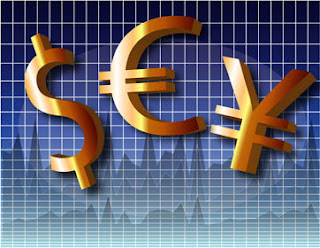
Forex — the Foreign Exchange Market is the and the most liquid financial market with the daily volume of more than $3 trillion. The Forex market has no physical location and no central exchange. It was created in the 70’s when international trade transitioned from fixed to floating exchange rates, and nowadays is considered to be the largest financial market in the world because of its tremendous turnover.

Forex simply means the buying of one currency and selling another at the same time. In other words, the currency of one country is exchanged for those of another. The currencies of the world are on a floating exchange rate, and are always traded in pairs Euro/Dollar, Dollar/Yen, etc. In excess of 85 percent of all daily transactions involve trading of the major currencies. Some of the participants in this market are simply seeking to exchange a foreign currency for their own, like multinational corporations which must pay wages and other expenses in different nations than they sell products in.
However, a large part of the market is made up of currency traders, who speculate on movements in exchange rates, much like others would speculate on movements of stock prices. Currency traders try to take advantage of even small fluctuations in exchange rates.
The Forex market is unique because of trading volumes, extreme liquidity of the market, large number of, and variety of, traders in the market, geographical dispersion, long trading hours: 24 hours a day (except on weekends), variety of factors that affect exchange rates, low margins of profit compared with other markets of fixed income.
The main trading centers are in New York, Tokyo, London, but banks throughout the world participate. Currency trading happens continuously throughout the day; as the Asian trading session ends, the European session begins, followed by the North American session and then back to the Asian session, excluding weekends.

There is little or no ‘inside information’ in the foreign exchange markets. Exchange rate fluctuations are usually caused by actual monetary flows as well as by expectations of changes in monetary flows caused by changes in GDP growth, inflation, interest rates, budget and trade deficits or surpluses, large cross-border M&A deals and other macroeconomic conditions. Significant news is released publicly so, at least in theory, everyone in the world receives the same news at the same time.
Currencies are traded against one another. Each pair of currencies thus constitutes an individual product and is traditionally noted XXX/YYY, where YYY is the ISO 4217 international three-letter code of the currency into which the price of one unit of XXX currency is expressed. For instance, EUR/USD is the price of the euro expressed in US dollars, as in 1 euro = 1.2045 dollar.
Unlike stocks and futures exchange, foreign exchange is indeed an interbank, over-the-counter (OTC) market which means there is no single universal exchange for specific currency pair. The foreign exchange market operates 24 hours per day throughout the week between individuals with forex brokers, brokers with banks, and banks with banks. If the European session is ended the Asian session or US session will start, so all world currencies can be continually in trade. Traders can react to news when it breaks, rather than waiting for the market to open, as is the case with most other markets.



No comments:
Post a Comment